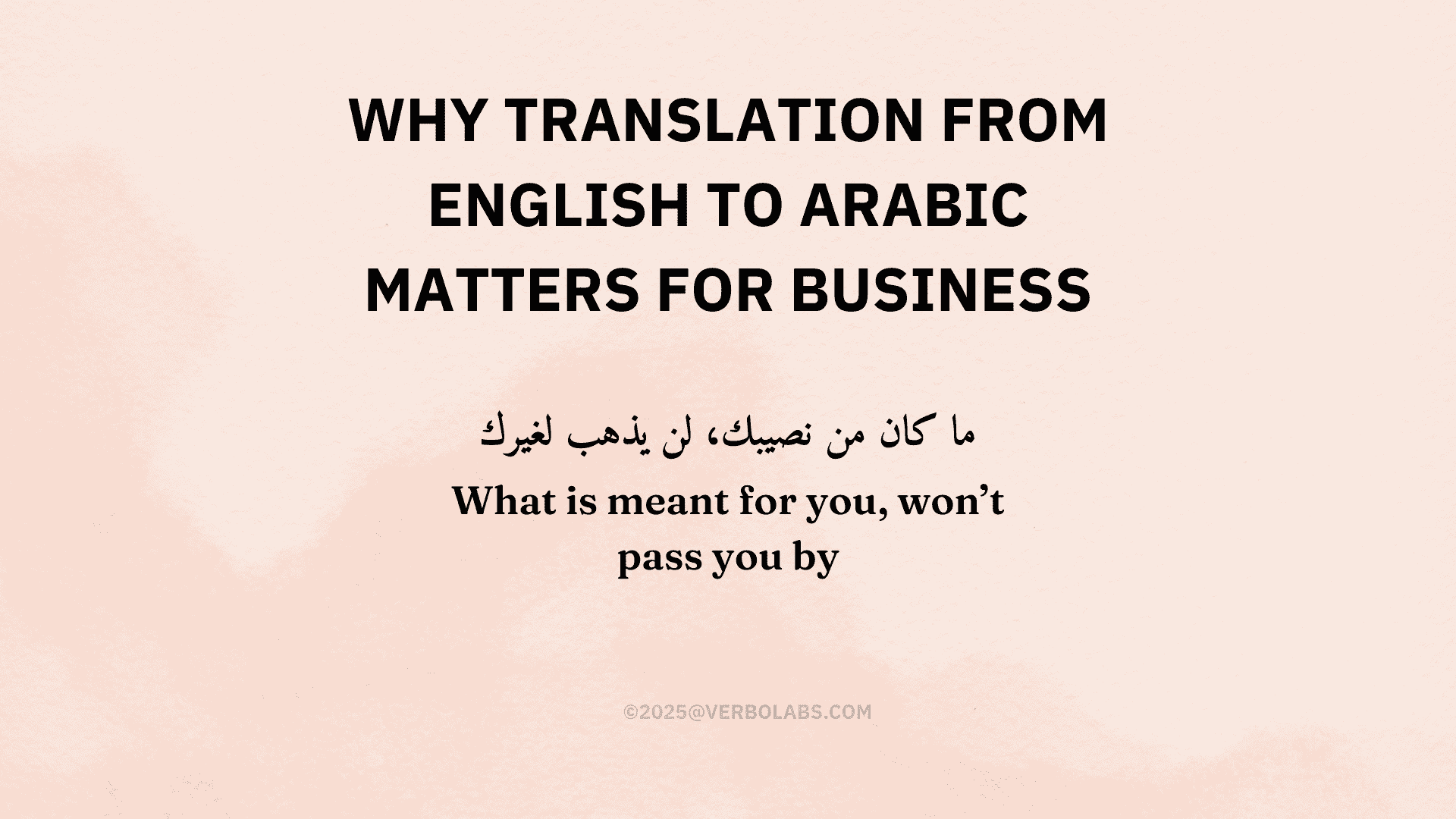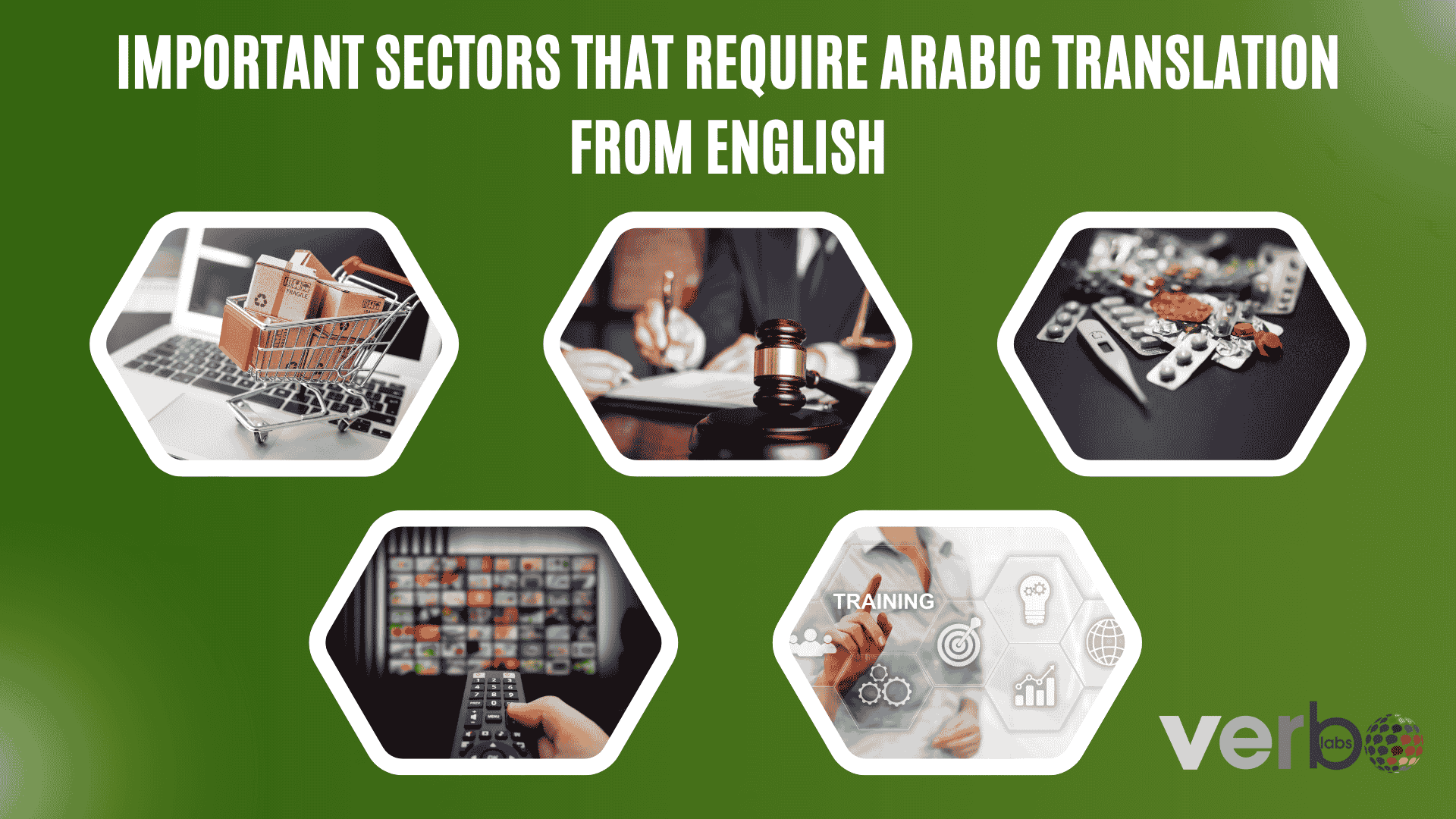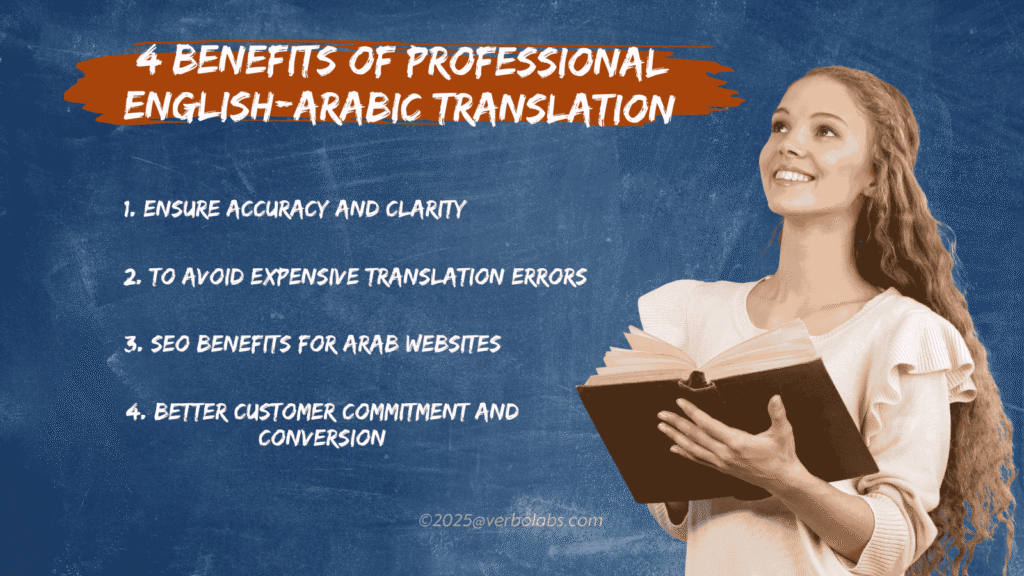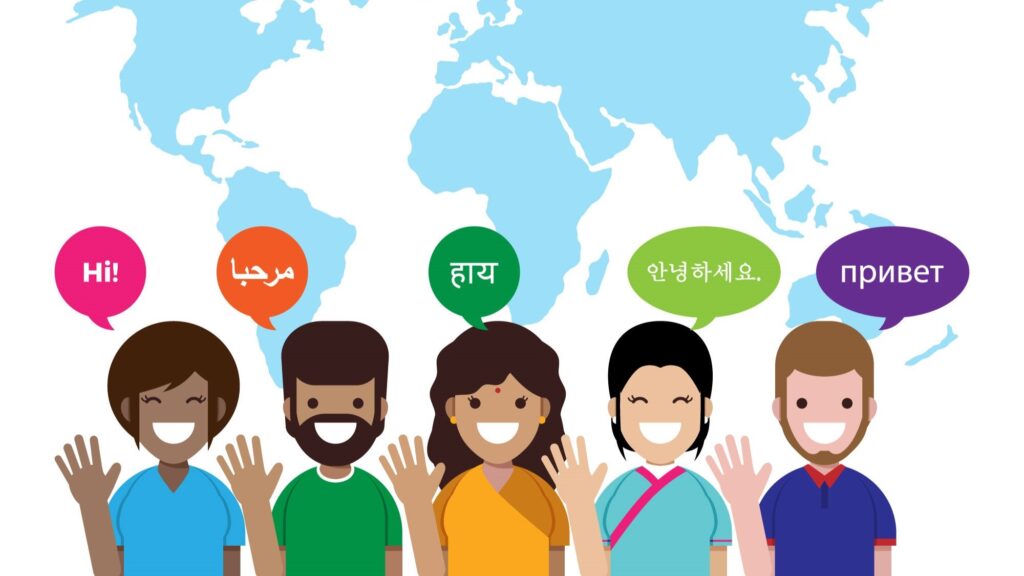
Companies keep looking for new markets to grow their business operations and generate more money. The Arabic-speaking world serves as a major untapped market because 420 million people live in 20 countries in this area. These markets have significant business potential because they generate more than $2.5 trillion combined GDP. Businesses need professional English-to-Arabic translation services to achieve success in their operations.
The Importance Of Translation From English To Arabic
1. Our Company Expands Its Business Operations Across MENA Countries
The MENA region offers many different markets with strong buying power. The United Arab Emirates, Saudi Arabia, and Qatar lead global income rankings, while Egypt, Morocco, and Algeria present large consumer markets. Even though younger people in these regions know more English, they still use Arabic for all business and government operations and everyday life.
Research reveals that 75% of customers prefer to buy items when product details are presented in their home language. When businesses offer Arabic content, they gain better market access than English-only companies in these regions.
2. Building Trust with Arabic-speaking Customers
A business relationship needs trust as its base, and language helps create this trust. Businesses that use Arabic for communication show respect for local customs and prove their dedication to serving the market correctly. Your company shows its commitment to Arabic-speaking customers by speaking their language, which goes beyond basic translation.
Business relationships in Arabic culture depend heavily on personal connections. Using local language communication helps companies build better connections, which leads to business opportunities they would not have without it.
3. Building Brand Credibility in Arabic-speaking Markets
Working in Arabic helps your brand be more credible in these countries. Local customers can see businesses that make investments in appropriate Arabic translation as more established, reliable, and dedicated to their area. This view will help your company stand out from rivals who neglect to properly localize their products.
Important Sectors That Require Arabic Translation From English

1. Online retail and e-commerce
The MENA region’s e-commerce market is expected to reach $28.5 billion by 2022, and it is seeing spectacular expansion. For online stores to generate conversions, product descriptions, customer service interactions, and website interfaces must be faithfully translated. According to research, 55% of buyers worldwide only purchase from websites where material is offered in their language.
To be really successful, Arabic e-commerce translation requires special attention to cultural sensitivity, payment preferences, and regional buying behavior.
2. Legal and Financial
The complexity of legal and financial records calls for perfect translation accuracy. Contracts, financial reports, investment prospectuses, and banking services have to be exactly converted to prevent legal problems or misunderstandings that could cost millions.
Often based on Sharia law ideas together with contemporary commercial norms, the Arabic legal system calls for translators with specific knowledge of both English and Arabic legal terminology.
3. Medical Services and Drugs
Effective communication determines patient safety. Medical records, pharmacological information, treatment plans, and healthcare marketing materials call for specific translations free of mistakes.
While clearly communicating with patients and healthcare professionals, professional translation guarantees compliance with local healthcare laws.
4. Entertainment Media
Demand for English-language entertainment material in Arabic markets keeps rising, calling for excellent subtitling, dubbing, and content localization. Streaming platforms are heavily investing in Arabic markets, which presents opportunities for content providers to properly translate and modify their work.
In this field, especially, cultural awareness is crucial since effective entertainment products must honor regional beliefs and customs.
5. Education and e-learning
The need for translated instructional resources is skyrocketing as education reform projects spread over several Arabic-speaking nations. Accurate translations that preserve the integrity of the original instructional content and make it available to Arabic-speaking students are needed by academic institutions, e-learning systems, and educational publications.
Also Read:
- Most Spoken Languages in USA: A Linguistic Snapshot
- Top Most Spoken Languages in Canada
- Top 10 Most Spoken Languages in Africa
Typical Difficulties In Arabic Translation From English
1. Difference in Grammar and Sentence Structure
Arab and English have fundamentally different linguistic structures. Arabic is written to the left, uses its own alphabet, and follows various grammatical rules. Sentence structure, action placement, and the concept of penis (which applies to adjectives in verbs, nouns, and Arabic) create important translation challenges.
Professional transport programs understand these differences and can restructure the material for natural sound in Arabic instead of producing strange direct translations.
2. Cultural Adaptation and Location
Effective translation that includes cultural adaptation goes beyond words. References, examples, and performances that resonated with English-speaking audiences can also close the flat or Arab audience if they are not properly located. Professional translation services involve cultural adaptation to ensure linguistically and culturally suitable material.
3. Urban Variations in Arabic Speech Areas
While modern standard Arabic (MSA) is assessed in all Arabic-speaking areas, local dialects vary greatly. The Arab Gulf of Egypt varies from Arabic, which varies from Morocco’s Arabic. Depending on the purpose of the target market and the material, translations may need to include regional dialectical elements, especially for marketing and advertising material.
4. Formatting and Technical Challenges
Arabic’s right-to-left script provides setup and faces challenges for websites, applications, and printed material. Text extension (Arabic text usually requires 20-25% more space than English) affects design elements. Special expertise is necessary to solve technical problems, such as the correct performance of Arab characters and numbers.
The Benefits Of Professional English-Arabic Translation Look.

These are the following benefits of professional English for Arabic translation services
1. Ensure Accuracy and Clarity
A professional translator prevents misconceptions that can damage business conditions or give rise to expensive errors. They ensure that your message is expressed clearly and accurately, maintaining the tone and intentions of the original material.
2. To Avoid Expensive Translation Errors
Poor translation marks can damage a reputation, create legal obligations, or lead to lost business opportunities. The cost of professional translation is minimal compared to potential losses from translation errors in contracts, marketing material, or product information.
3. SEO Benefits for Arab Websites
Professional translations include appropriate keyword research and location for the Arab search engines. They help companies rank high on local search engines such as Google.Ae (UAE) or Google.Sa (Saudi Arabia) is increasing its visibility on the web and attracting organic traffic from Arabic-speaking users.
4. Better Customer Commitment and Conversion
Properly translated and located material for Arab cultural contexts resonates better with local target groups. This better connection leads to high commitment, better conversion conditions, and finally, strong business conditions and increased revenues.
How to Choose the Right English for Arabic Translation Service
Proper translation partners can distinguish between triumphant market entrance and costly failure. Look for services that offer:
- Domestic Arab-speaking translator with professional expertise
- Experience in your specific industry vertical
- Extensive quality assurance procedures
- Cultural adaptation
- Technical knowledge in handling Arabic formatting
- Integration with your extensive marketing and location strategy
By participating with the right translation service, companies can navigate the complications of Arab markets while exploiting the enormous opportunities they introduce. In a world where effective communication is important for commercial success, professional English is not a cost to Arabic translation—it is an investment in global development.

Ready to grow in Arabic-speaking markets? Partner with VerboLabs for expert English-to-Arabic translation services. Get Started Today.
FAQs
Businesses need English to Arabic translation to reach 420+ million Arabic speakers, build customer trust, and expand into high-growth MENA markets.
E-commerce, legal, financial, healthcare, education, and entertainment are the top industries requiring Arabic translation for effective communication.
The cost of English-to-Arabic translation depends on factors such as project size, industry complexity, and turnaround time. Since every project is unique, we provide custom quotes tailored to your requirements. Contact VerboLabs today to get a personalized estimate for your project.
Yes, MSA is widely understood across Arabic-speaking countries. However, marketing content often benefits from incorporating regional dialects.
Localized keywords help businesses rank higher on regional search engines (Google.ae, Google.sa), driving more organic traffic.



